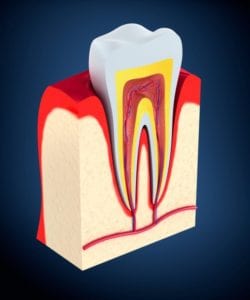If your gums bleed when you brush and floss, it may be a sign of gum disease or periodontitis. Periodontitis is linked to the development of health problems such as diabetes, stroke, and heart disease. However, regular preventative dental care and comprehensive treatments can reverse the damage done by periodontitis. Dr. Sarah Cook treats patients with gum problems in her Chapel Hill, NC dental office. He focuses on restoring herpatients’ oral health and overall health. Learn more about the conditions that may cause gum disease below.

Risk Factors of Gum Disease
There are some factors that may increase your chance of developing gum disease. If any of these risk factors apply to you, be sure to let our dentists know, so that they can provide the appropriate care.
- Smoking Or Tobacco Use: Smoking or using tobacco products increases your chances of developing gum disease. Smoking can break down the gum tissue and weaken the immune system.
- Compromised Immune Systems: If you have a compromised immune system, or are immunosuppressed, your body may need more fight off bacteria and plaque. Our dentists can help you receive preventative care to prevent gingivitis and periodontitis.
- Hormonal Changes: Some women are more at risk of developing gum disease during pregnancy. Hormonal changes can increase your risk of developing the disease. If you are pregnant, being proactive about dental cleanings and brushing and flossing will keep your teeth and gums healthy.
- Medications: Certain medications increase your risk of developing gum disease because they can cause dry mouth. Be sure to let us know if you are taking any medications, so we can help you combat dry mouth as well as gum disease.
Schedule an Appointment Today
Do you have gum problems? Are you at risk of developing gum inflammation or gum disease? Please call our Chapel Hill, NC dental office for care at (919) 551-8847. We will help you get the care you need in our comfortable office. You may also request a consultation with Dr. Cook on our website. He will be happy to answer any questions you may have about your symptoms or gum disease treatment.
